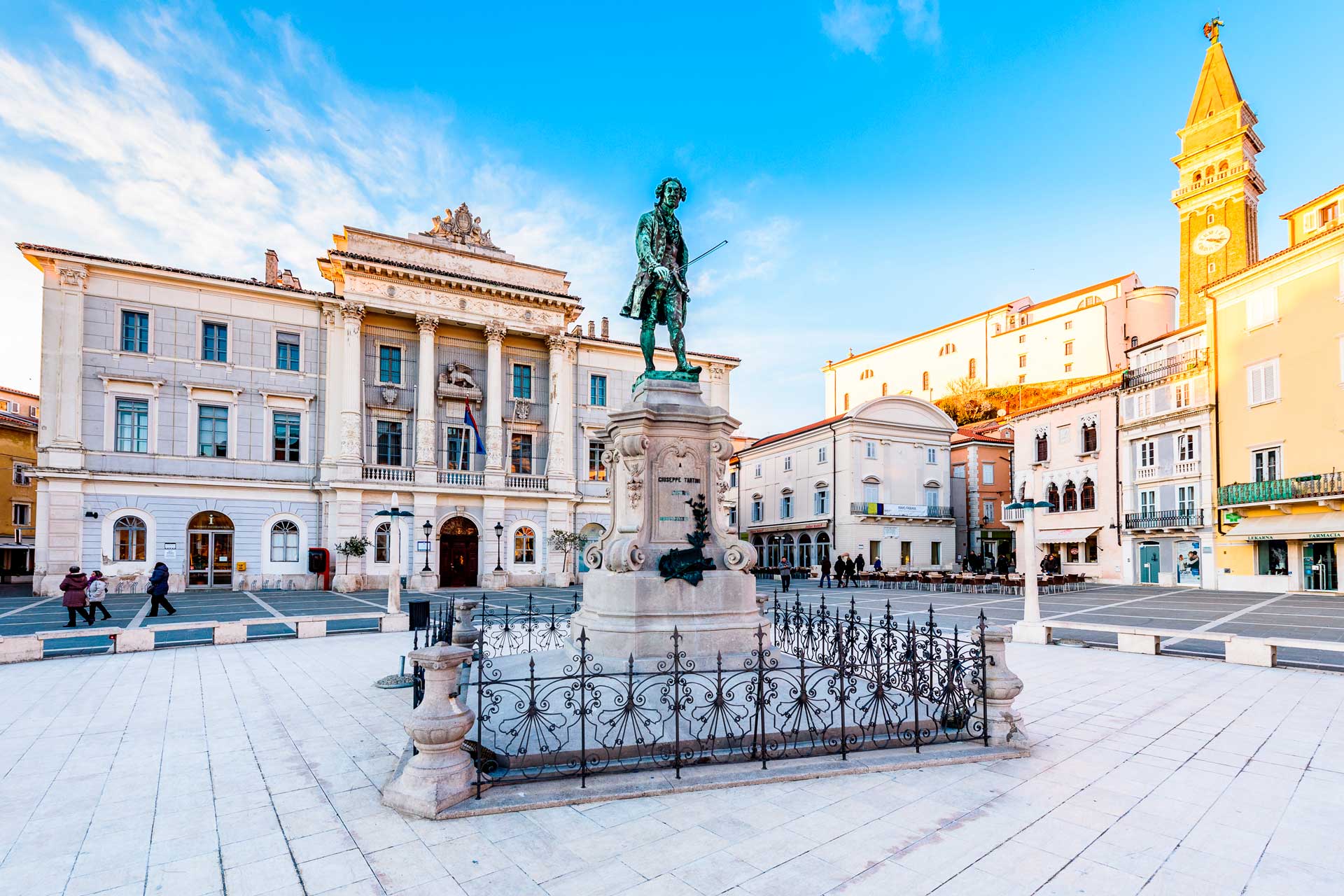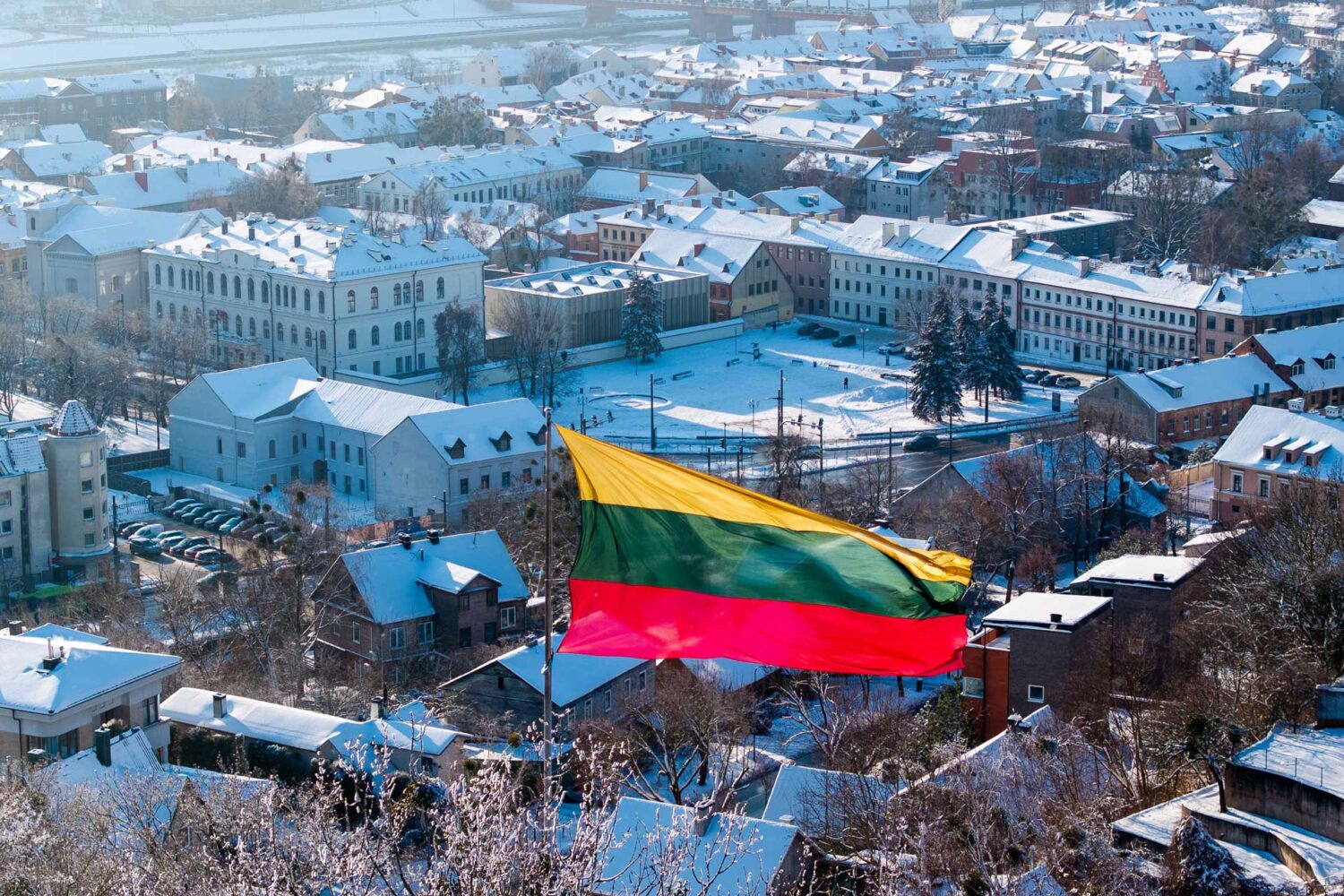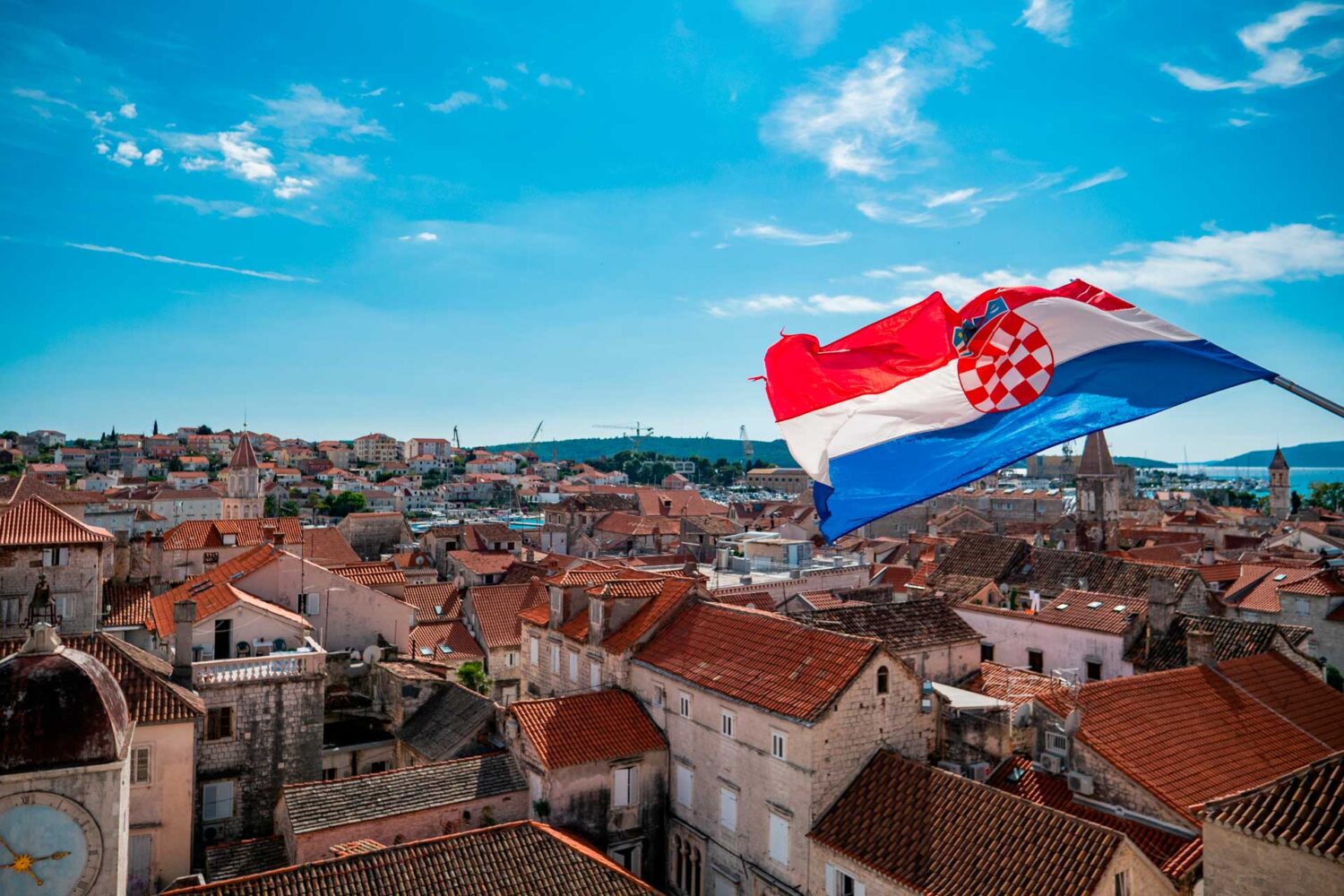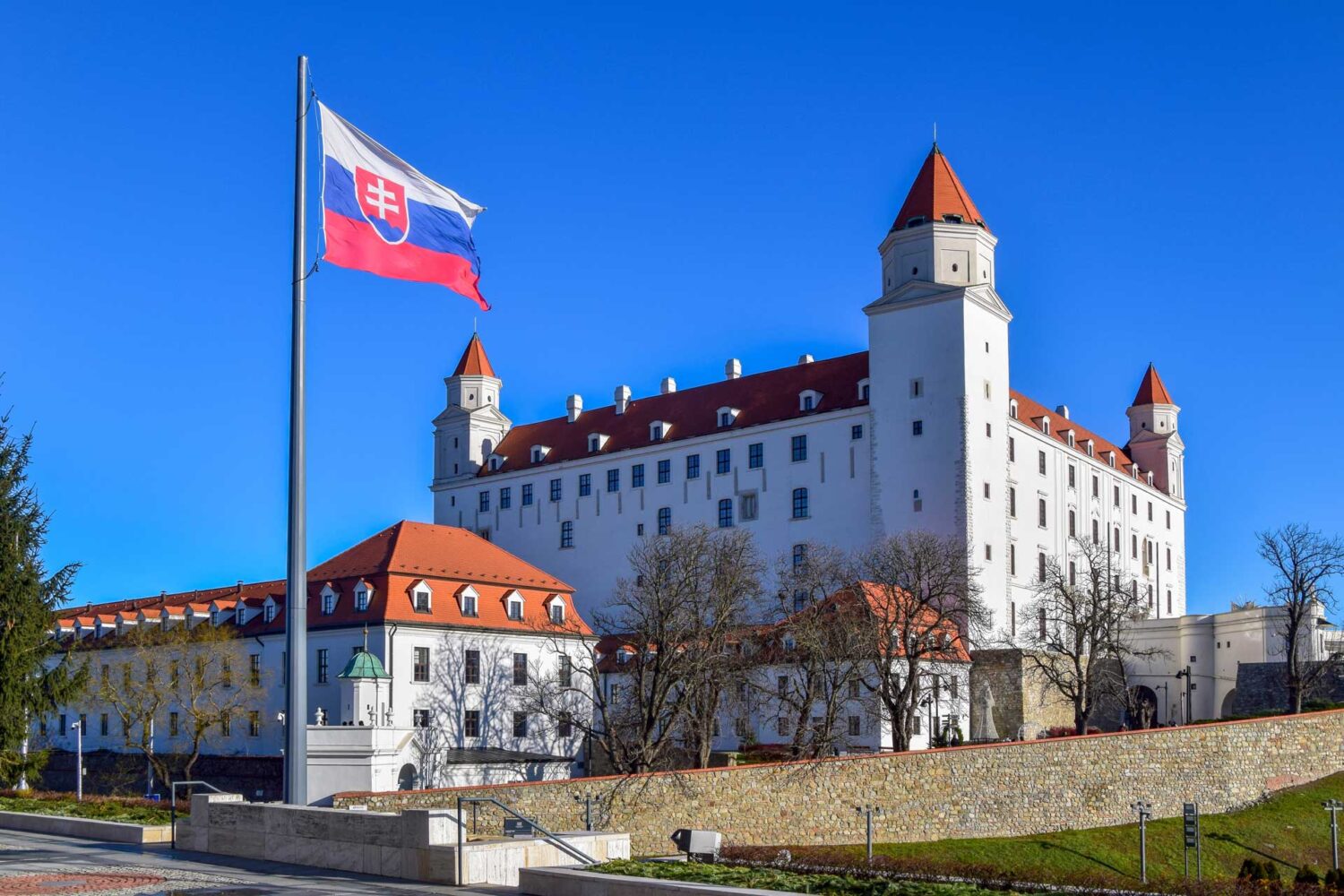Slovenia is a small European country famous for its security and picturesque nature. Slovenian citizenship is in demand due to the fact that it opens the door to the entire European Union and gives broad rights. Unlike residence permit and permanent residence permit, which only allow you to live in the country, Slovenian passport makes you a full-fledged citizen. Citizenship alone gives you unlimited right of residence, voting rights, state protection and an EU passport.
Citizenship of Slovenia can be of interest to different categories of immigrants. Students who have graduated from Slovenian universities often want to stay and obtain full legal status. Businessmen value the Slovenian passport for the opportunity to work in the EU market and travel without barriers. Families seek social stability, high standards of living and want their children to automatically become EU citizens. Citizenship is also attractive for descendants of Slovenes (repatriation program), for foreign professionals and investors planning to settle in the country for the long term. In this article, we will look in detail at how to obtain Slovenian citizenship, what grounds and procedures exist, how long it takes and what mistakes should be avoided.
Want to find out if you qualify for one of the Slovenian citizenship programs? Leave a request for consultation – Mycitizenagency lawyers will analyze your situation and suggest the best path to Slovenian passport. Take the first step towards living in a country with European rights, security and stability.
Benefits of Slovenian citizenship
- Freedom of movement.
The Slovenian passport is among the “strongest” passports in the world. Slovenian citizens can travel visa-free or with a visa on arrival to approximately 170 countries, including all EU states, Schengen states and many others. This makes tourism and business travel around the world much easier. - The right to live and work in the EU.
Slovenia is a member of the European Union, so Slovenian citizenship automatically makes you an EU citizen. This means that you have the right to live, study, work and open a business in any country of the EU and the European Economic Area without restrictions. For example, with a Slovenian passport you can freely move to Germany, France or any other EU country and enjoy the same rights as local residents. - Social guarantees and standard of living.
Slovenian citizens have access to quality European medical care through insurance and to free education – both domestically and often on favorable terms at universities in other EU countries. They have access to social benefits (for example, unemployment benefits, childbirth benefits), a decent old-age pension if the conditions for length of service are met, and other social support measures provided for by Slovenian law. Slovenia itself is characterized by a high level of security, ecology and comfort, making it an attractive place to live and raise children. - Transfer of citizenship to children.
The status of a citizen of Slovenia is retained for life and is automatically transferred to descendants. Children with at least one Slovene citizen parent receive citizenship at birth. This simplifies their future: they immediately have all the rights of an EU citizen and can obtain a Slovenian passport. In addition, they can reunite with their family – their spouse and close relatives are entitled to a residence permit and can later apply for citizenship (more on this below). - Possibility of second citizenship.
Slovenian law generally allows dual citizenship, which is a big plus for those who do not want to part with their homeland. A Slovenian citizen can keep his/her previous passport if certain conditions are met (see the section on dual citizenship). Even when required to renounce the previous citizenship, Slovenian law itself is loyal to dual citizenship: it does not automatically deprive a Slovenian of citizenship if he or she acquires a passport of another country.
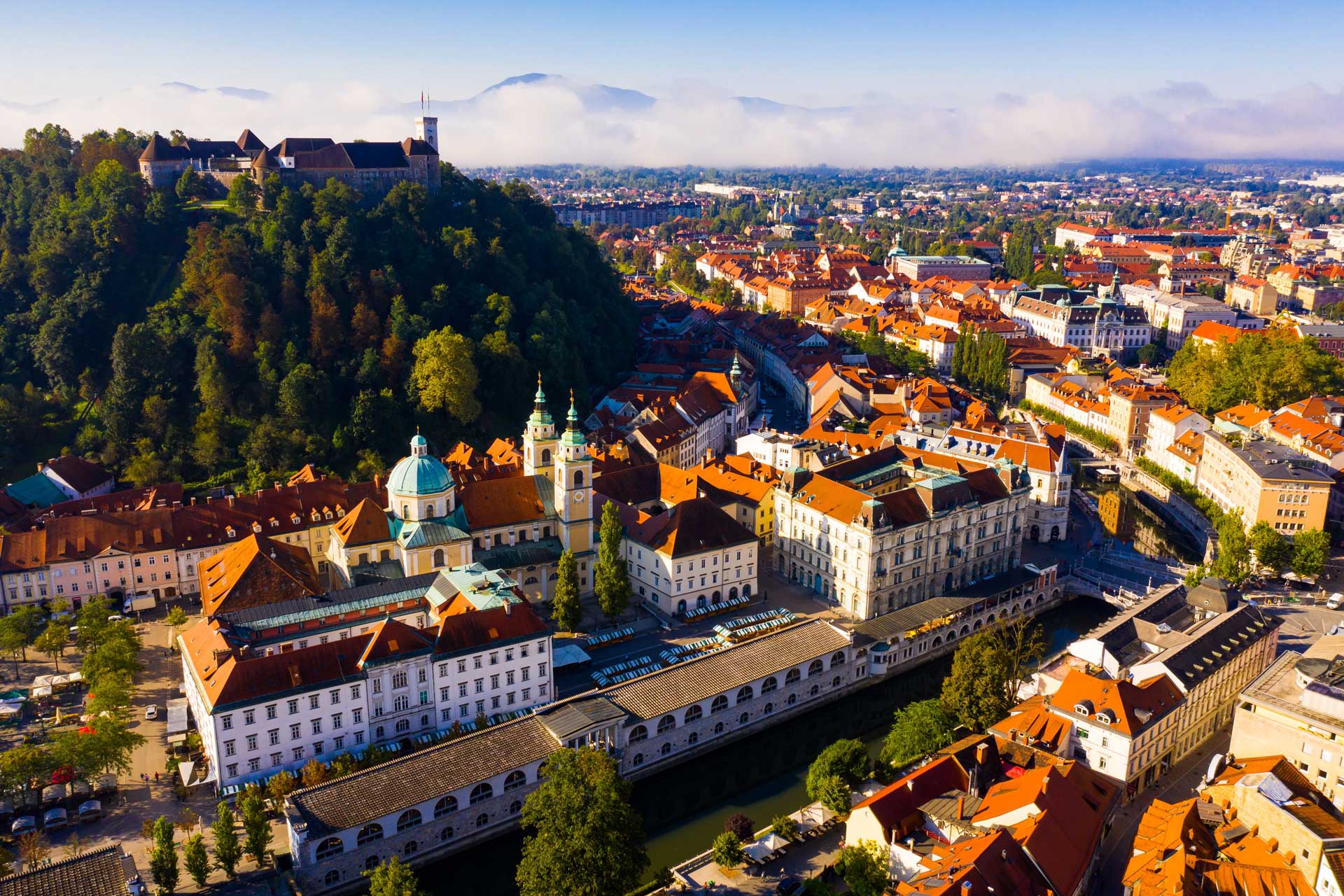
How to obtain Slovenian citizenship
The Citizenship of the Republic of Slovenia Act describes several ways of acquiring citizenship. Let us look at the main ways and conditions of each.
Citizenship by descent (parental roots)
Citizenship is granted to children of Slovenian citizens by descent. If at least one of the parents is a Slovene citizen, the child automatically becomes a citizen from the moment of birth. This rule applies regardless of where the child is born. Even if the family lives abroad and the child is born outside Slovenia, the child acquires Slovenian citizenship by blood. In such cases, the parents only need to issue a birth certificate and register the child as a citizen at the consulate.
Citizenship by birth in the territory
The issue of obtaining citizenship by place of birth (jus soli) in Slovenia stands out. Birth in Slovenia does not automatically confer citizenship if both parents are foreigners. Unlike some countries in America, Slovenia is based on the principle of blood, not soil. An exception is made when a child is born to ethno-marginal parents who have no citizenship, or his parents are unknown. In the usual situation, however, children of foreign nationals receive the citizenship of their parents, not Slovenian citizenship.
Thus, giving birth in Slovenia does not in itself confer any citizenship privileges on the child, let alone on the parents. The myth that one can come to give birth to a child and the whole family will receive a passport is a misconception. The citizenship of the newborn is not tied to the land, but to the citizenship of the parents. Therefore, it is more important for immigrants to first formalize their status (residence permit/permanent residence permit) and then think about the citizenship of the family as a whole.
Naturalization (through long-term residence)
Naturalization is the most common way of acquiring citizenship for those who do not have Slovenian roots or marriage ties. It is the acquisition of citizenship at the foreigner’s own will, subject to a number of conditions of the state. In Slovenia, the standard requirements are as follows: at least 10 years of legal residence in the country. By “10 years’ residence” is meant the cumulative period of living in Slovenia with a residence permit; usually first a temporary residence permit is issued, after 5 years – a permanent residence permit, and after another 5 years of permanent residence you can apply.
It should be noted that Slovenian naturalization has benefits for certain cases. For example, refugees and stateless persons can apply after 5 years of residence. Foreigners who have completed higher education in Slovenia – after 7 years. Spouses of Slovenian citizens are a special category, discussed separately below. In addition, if the candidate was born and raised in Slovenia but for some reason did not have citizenship, or if the denial of citizenship may be detrimental to the interests of the country, the government may also agree to this (so-called exceptional naturalization). However, the standard remains 10 years of residence for regular applicants.
Citizenship by marriage
Marriage to a Slovenian citizen opens a simplified path to a passport, although it is not instantaneous. Citizenship through marriage is possible if the marriage lasts at least 3 years and the union is officially registered. In addition, the foreigner must have lived in Slovenia for at least 1 year continuously before applying. Simply put, the Slovenian spouse first obtains a residence permit for family reunification, lives in the country for a year, integrates and then can apply for citizenship.
The advantage for spouses is that they do not have to wait 5+5 years, as in the case of regular naturalization – the period is reduced to about 3-4 years of marriage and residence. Also, by law, such applicants usually do not need to renounce their first citizenship. Naturally, fictitious marriage is inadmissible: the authorities check the reality of the marital relationship and may conduct interviews. If the marriage breaks up before citizenship is granted, the application is likely to be rejected. But in real families, this option is one of the most popular and reliable ways to achieve the coveted status.
Citizenship for investment (through investor’s residence permit)
Slovenia does not have a direct citizenship-by-investment program – you cannot buy a passport for a certain amount of money. However, it is possible to invest in the economy and obtain a residence permit and then, after a while, citizenship according to the general procedure. The minimum requirements for an investor are to invest 50,000 € in the authorized capital of a Slovenian company or business project and create jobs. After that the foreigner is granted a temporary residence permit for 1 year (with the right to extend, usually extended for 2 years at once). After 5 years of continuous residence with an extended residence permit, the investor can receive a permanent residence permit (permanent residence). And after another 5 years of permanent residence – to apply for citizenship, like any other naturalized resident.
Thus, the same total of 10 years of residence, just immigration begins through financial investments that allow you to get a foothold in the country. A big plus is that Slovenian authorities are loyal to entrepreneurs: if the business is successful, there are usually no problems with extending the status. Families often move through investments: the investor receives a residence permit and transports his spouse and children under the reunification program. Subsequently, all family members, having lived for the required period of time, can also become citizens.
Repatriation (citizenship by roots)
Repatriation is a homecoming for the descendants of Slovenian descendants. The program is specifically designed for ethnic Slovenes and their direct descendants up to the fourth generation. According to the Citizenship Act, all emigrants from Slovenia and their children, grandchildren, great-grandchildren are entitled to obtain a national passport through a simplified procedure. Many people of Slovenian origin now reside outside the country – all of them can take advantage of this opportunity
The main condition for obtaining citizenship by repatriation is the following: the applicant must document Slovenian roots (ancestors up to the 4th knee). Once the application is submitted, the citizenship procedure takes several months to a year. For repatriates, the requirements are simplified and they are exempted from renouncing their previous citizenship - they can keep their first passport. They are also not required to take comprehensive exams on history or culture - an oath is sufficient. The repatriation process is considered one of the fastest and easiest ways for foreigners to become a Slovenian citizen.
Citizenship for special merit
There is a separate procedure for special naturalization, when citizenship is granted for outstanding service to the country or in the public interest. The decision on such citizenship is made by the Slovenian Government or even the Parliament, based on whether the applicant has brought exceptional benefit to the country. Examples are famous international athletes (to play for the national team), world-renowned scientists, large investors who create many jobs, and cultural figures. For them, the standard requirements can be significantly relaxed: the mandatory residence period can be reduced to 1 year or not required at all, a language test is not required, and dual citizenship is usually allowed (they are not forced to give up their former passport). In fact, this is an exception to the rules, rarely applied. For example, there is the story of track and field athlete Merlin Otti, who in 2002 obtained Slovenian citizenship for the sake of competing for the national team, although she was born in Jamaica.
Obtaining a second citizenship is not only freedom of movement, but also new opportunities for business, education and life of your family. Our experienced lawyers will help you choose the best path to a European passport, taking into account all the nuances and requirements. Leave a request for a consultation and start your path to a new life today!
Find out how to obtain citizenship faster
Procedure for obtaining Slovenian citizenship
Having sorted out the basics, let’s move on to the practical side of the issue: how to get a Slovenian passport step by step. The procedure includes several steps:
- Checking the grounds and preparing for the move.
First, the applicant should determine the basis on which he or she will apply for citizenship. This affects the sequence of actions. For example, the spouse of a citizen first needs to get married and live together in the country for a year; an applicant for naturalization – to gain the necessary length of residence (usually through work or study). - Collecting the necessary documents.
When suitable conditions are met (e.g., the required years of residence), the stage of document preparation comes. The list of documents depends on the basis, but there is a standard package. Usually required: birth certificate of the applicant; valid passport; completed application form; document confirming current citizenship (or lack of citizenship); proof of continuous residence in Slovenia (registration at the place of residence, certificates of residence); for spouses – marriage certificate and confirmation of the duration of family life; for repatriates – papers on Slovenian origin (metrics of parents, grandparents).
You will also need: a certificate of no criminal record from your country of citizenship; a certificate of passing the Slovenian language exam; income or bank account documents to prove financial solvency and absence of tax arrears; health insurance. All documents issued in languages other than Slovenian must be translated into Slovenian and notarized or apostilled. Take a few weeks to collect and translate the documents, as some certificates have an expiration date (for example, a criminal record certificate). - Filing of application.
The completed dossier is submitted by the applicant in person. In Slovenia, applications for citizenship are accepted by the administrative units (Upravna enota) of the place of residence or directly by the Ministry of the Interior. Filing must take place in Slovenia for adult applicants. The exception is children: parents may apply for the child’s citizenship through a Slovenian embassy or consulate abroad. At the time of submission, all documents are attached, the state fee is paid, and a final check of the application form is carried out. If the documents are in order, the officer will issue a confirmation of acceptance of the application. - Payment of state fees.
The application fee for Slovenian citizenship is symbolic – about 13 €. It is usually paid at the time of submission of the application (at the office itself through the cash desk or terminal). - Consideration and verification.
After submission, the waiting period for the decision begins. The applicant’s file is checked by the Ministry of Internal Affairs and other authorities. The authenticity of documents, the absence of problems with the law or migration violations, the fact of fulfillment of all conditions are checked. The authorities may also send requests to your country of origin (e.g., for confirmation of a criminal record certificate, for renunciation of citizenship). Processing times vary – from a few months to a year or more, depending on the category and workload of the authorities. The average period is about 6 months, but officially it can be longer. According to reviews, the exact waiting time is usually unknown in advance – everything is individual. In practice, repatriation is often within 6-8 months, naturalization may take 12-18 months. - Taking the oath.
If the decision is positive, the applicant is informed that his/her application has been approved. However, you will become a citizen only after the final step – the solemn swearing-in. A date and time are set for you to appear and recite the oath of allegiance to the Republic of Slovenia. The oath is usually held in a formal setting – in the administration building or the Ministry of the Interior, often by a group of several new citizens. The candidate repeats the oath and signs the relevant act. From that moment on, you legally acquire Slovenian citizenship. - Obtaining your passport and documents.
After you are sworn in, you will have access to your citizenship documents. First, you receive a naturalization certificate – a document confirming the acquisition of citizenship. On its basis you can issue a passport and a national identity card (ID-card). The passport itself is produced in a few working days. Usually, the new citizen receives a Slovenian biometric passport and ID-card within a week. From that moment on, you are a full-fledged citizen with all the rights and obligations that this entails. - Withdrawal from the former citizenship (if required).
Many people are interested in whether and when to renounce their first citizenship. In Slovenia, the renunciation requirement does not apply to all cases (for more information, see the section on dual citizenship).
Get free information about the nuances of passport issuance in Slovenia
Leave a request and Mycitizenagency specialists will contact you at your convenience
Requirements for applicants for citizenship
To successfully obtain Slovenian citizenship, it is not enough to have lived for the required period of time or to have a reason – you must also meet a number of requirements. We have already mentioned most of them, but we will summarize them in one section:
- Residency requirement. Almost all applicants must have lived in Slovenia for a certain minimum period of time. For standard naturalization – 10 years (the last 5 continuously). For spouses – 1 year of married residence in Slovenia. For refugees and stateless persons – 5 years, for university graduates – 7 years. Exceptions – repatriates and children of citizens (they do not need to reside) and some cases of special merit.
“Continuous residence” usually means that one cannot leave Slovenia for a long period of time in the last years before filing. There are allowable gaps (up to 6 months per year or a one-off departure of up to 1 year for valid reasons), but in general the applicant’s life must be firmly tied to the country. - Legal status in the country. The period of residence is counted only if you had a legal status – residence permit or permanent residence permit. Illegal stay or residence on a tourist visa is not counted. Therefore, the first step to citizenship is always to obtain a residence permit (work, study, family or other), and then – to extend it to a residence permit.
- Financial independence. The applicant must prove that he is able to provide for himself and will not apply for social benefits. For this purpose, information on income, work, business or availability of funds in the account is provided. For example, for naturalization it is necessary to show certificates of employment, tax payments and absence of debts. If a person is not officially employed in Slovenia, but lives off savings or remote work, bank statements, sponsorship documents, etc. should be attached. The purpose is to make sure that the new citizen does not become a burden on the social system.
- Absence of criminal record and violations. A clean criminal record is a mandatory requirement. A certificate of no criminal record from the country of citizenship (and from Slovenia, if you have lived there for a long time) must be attached. Serious crimes or recidivism may be grounds for refusal. Migration authorities also check whether the applicant has not violated the regime of stay, has not exceeded the terms of visas, and has not been deported before. It is important to strictly comply with the laws during the period of residence before submitting an application.
- Proficiency in the Slovenian language. The integration condition for naturalization is the knowledge of the state language. The Slovenian language is quite complex, it belongs to the South Slavic group. Usually, a basic or intermediate level of A2 or B1 according to the CEFR is required. This is confirmed by a certificate of passing the Slovenian language state examination for adults. The exam includes tests of speaking, comprehension, writing and reading. Some categories are exempt from the language test: for example, elderly people over 60 years of age who have lived in Slovenia for 15+ years, or foreigners who have graduated from a school/university in Slovenia (thereby proving their knowledge of the language). But the vast majority of applicants need to pass a test. It is therefore worthwhile to take a Slovenian course before applying. This is not only a legal requirement, but also a guarantee of successful adaptation.
- Renunciation of former citizenship. In the general procedure for naturalization under Slovenian law, a renunciation of previous citizenship is required. This means that the new citizen should not remain in dual citizenship to avoid conflict of rights and obligations between countries. However, there are many exceptions (read more about them below).
- Loyalty and knowledge of the basics of the law. The new citizen needs to respect Slovenia’s constitutional order and not pose a threat to national security. In the process of consideration are checked such things as the absence of links with extremist organizations, terrorist activities, serious tax violations. Formally, the applicant signs an oath of allegiance to Slovenia. There is no separate examination for knowledge of history or constitution, as in some countries, in Slovenia.
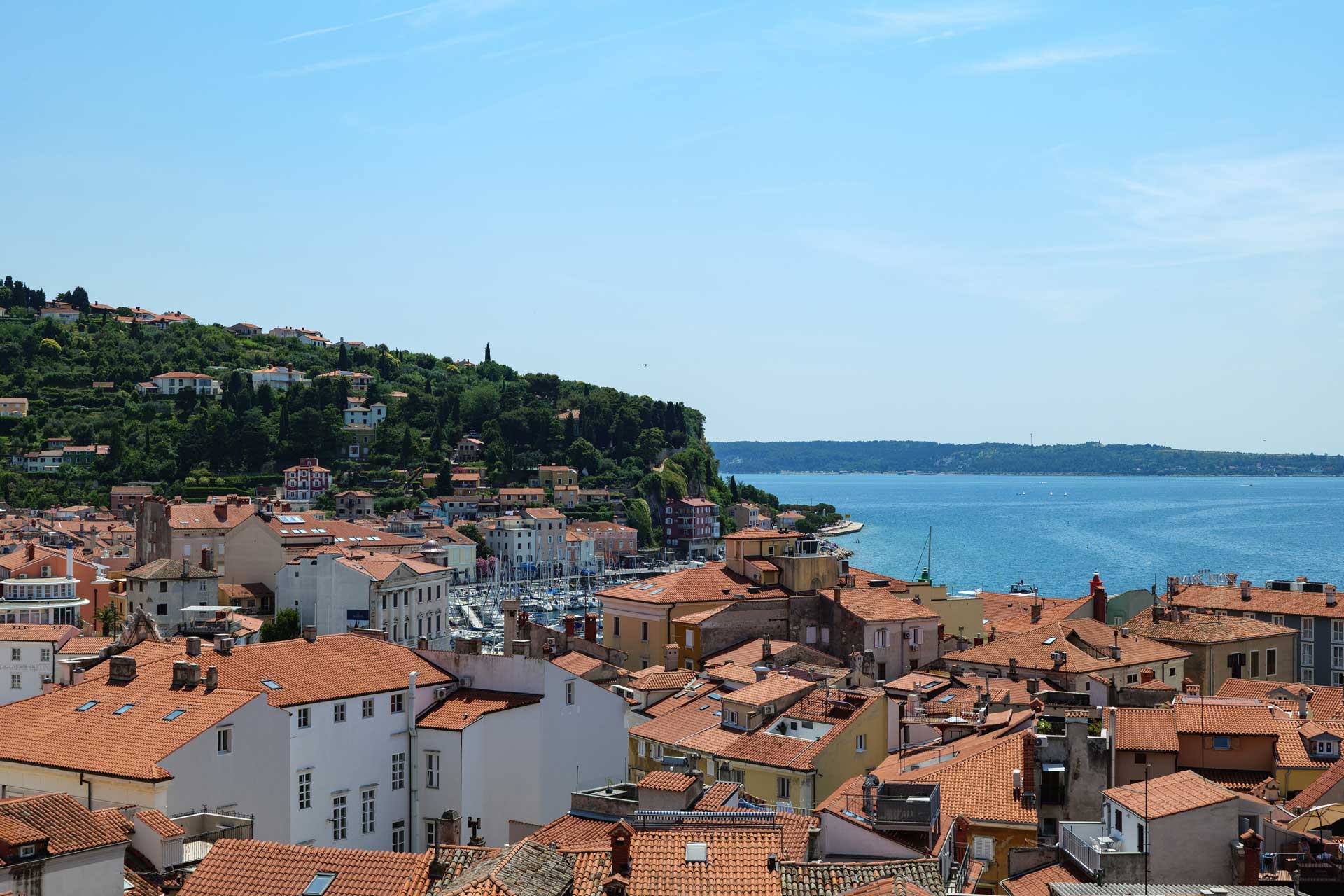
Terms and cost of registration
So how long does it take from the start of immigration to obtaining a Slovenian passport? The minimum residence period varies depending on the grounds of residence:
- Naturalization: 10 years of residence (5 years before permanent residence + 5 years after permanent residence).
- Marriage: about 3-4 years (minimum 3 years married, of which 1 year in Slovenia before filing).
- Repatriation: about 4-12 months.
- Investment: do not shorten the period – also ~10 years for citizenship, but a residence permit can be obtained quickly (in a couple months) with capital investment.
- Special merits: individualized, theoretically 1-2 years, sometimes less.
- Family reunification: for children there is no timeframe – children are citizens immediately upon birth; for other relatives, first you need 5 years before the residence permit, then another 5 years.
Once the residency requirement has been met and the documents have been submitted, the processing time of the application is several months. The law does not set a strict deadline for issuing a decision, so it all depends on the workload of the authorities. According to feedback, the decision is usually issued within 6-12 months. If there is no response after a year, you can request a status update or file a complaint about inaction, but in practice delays of more than a year are rare. Repatriation applications are often processed faster – in 3-6 months, because the grounds are more obvious. In complicated cases (doubts in documents, additional checks) the process may take up to 18 months or longer. In any case, the exact waiting period is not known in advance – you just need to follow the notifications of the Ministry of Internal Affairs and wait.
The cost of obtaining citizenship is made up of several parts:
- State fee. The state fee for processing the application is about 13 euros. It is small compared to other costs.
- Translations and notarization. If the documents are not in Slovene, an official translation and notarization or apostille are required. Translation of one-page costs approximately 20-30 €, notary services – 10-20 € per document, apostille – 15-30 €. In total, a package of documents can cost several hundred euros.
- Language exam. There is a fee for taking the Slovenian language test. The price of the exam is around 150-200 €. Language courses (if needed) are optional and cost depends on the school.
- Health insurance. To apply for citizenship, you must already have Slovenian health insurance (it is compulsory for all residents). If you don’t, you will have to get one; the cost is ~50 € per month for private insurance.
- Services of a lawyer/consultants. Not a mandatory expense, but many people engage specialists to support the process. Prices vary: a consultation may be free of charge, while complex case management may cost from 1000 € and up, depending on the complexity. Mycitizenagency offers a complete turnkey package with payment in stages.
- Additional costs. At repatriation – consular fee for visa D (about 77 €), trips to archives for documents. At naturalization – costs of living for 10 years, taxes, etc., which is difficult to estimate specifically for the purpose of citizenship, but it is a factor.
In general, the price of Slovenian citizenship itself is not officially high – the fee and exam are measured in tens of euros. The main investment is your time and effort to fulfill the conditions, as well as the normal costs of living and integration in the country.
Check your chances of getting an EU passport through a simplified procedure
Sign up for a free consultation to learn more from the experts at Mycitizenagency as soon as possible
Dual citizenship: conditions and nuances
Many immigrants are concerned about the question: does Slovenia allow dual citizenship? The answer is yes, but with reservations. According to the law, dual citizenship is allowed for Slovenians, but when foreigners are naturalized, they are usually required to renounce their former citizenship. That is, formally, the country tries to avoid situations when a new citizen retains the nationality of another state, except in special cases.
When can I keep two passports? There are categories in which the Slovenian authorities do not require you to renounce your second citizenship. These include:
- Repatriates by descent. By obtaining a passport by descent, you may not have to renounce the citizenship of your home country – a great advantage of the repatriation program.
- Minor children. If a child obtains citizenship (by birth or with his parents), he does not need to renounce his previous citizenship. Later, when he or she reaches 18, he or she will be able to resolve the issue of dual citizenship on his or her own.
- Former citizens of Slovenia. Persons restoring a previously lost Slovenian passport are also entitled to retain other citizenships.
- Refugees and stateless persons. There is no condition of single citizenship for stateless persons or persons with refugee status.
- Spouses of Slovenes – subject to the consent of the Government. Generally, if the Government agrees, the husband or wife of a Slovenian citizen can become a citizen without losing their native passport.
- EU citizens. Immigrants from EU countries may not be required to give up if there is a dual citizenship agreement between Slovenia and that country. Many EU countries themselves now allow multiple citizenship, so in practice, for example, a Frenchman or Italian naturalizing in Slovenia will retain his first passport.
If you do not fall under any of the exemptions, you will have to renounce your previous citizenship to complete naturalization. This is usually relevant for standard applicants from countries that do not fall under the listed exemptions. In general, dual citizenship in Slovenia is a possible but complex issue. At the stage of immigration planning, it is worth discussing it with a Mycitizenagency lawyer in order to choose the best way (perhaps to use one of the preferential categories, where renunciation is not necessary).
Obtaining Slovenian citizenship is a lengthy but achievable process that rewards you with many benefits in the end. You will receive a passport from one of the most developed and secure countries in the EU, and you will enjoy freedom of movement and many social benefits for yourself and your family. However, it is important to be sober about the requirements and plan every step from the start.
To increase your chances, start by analyzing your grounds. Perhaps you have Slovenian ancestors and did not know it – then the repatriation route will shorten the time and avoid rejection of your first passport. It is useful to consult legal immigration experts. For example, Mycitizenagency expert will help you choose the best option, tell you what documents to collect, how to prove the basis (whether it is marriage, family tree or work experience), what to pay attention to in order not to be rejected.
In conclusion: Slovenian citizenship is a realistic goal if you approach it responsibly and patiently. Thousands of people from different countries have already traveled this path and have become full-fledged Slovenians. Their testimonials show that the game is worth it: the opportunities offered by a Slovenian passport more than repay the effort. The main thing is to follow the law, take your time where time is of the essence, and seek professional support when you need it. Then your immigration dream will definitely come true.
Frequently Asked Questions about Slovenian Citizenship
We have compiled answers to the most common questions about obtaining Slovenian citizenship. If you did not find the information you were looking for or want to learn more about the requirements, timelines, and benefits of a Slovenian passport, contact us for a free consultation.
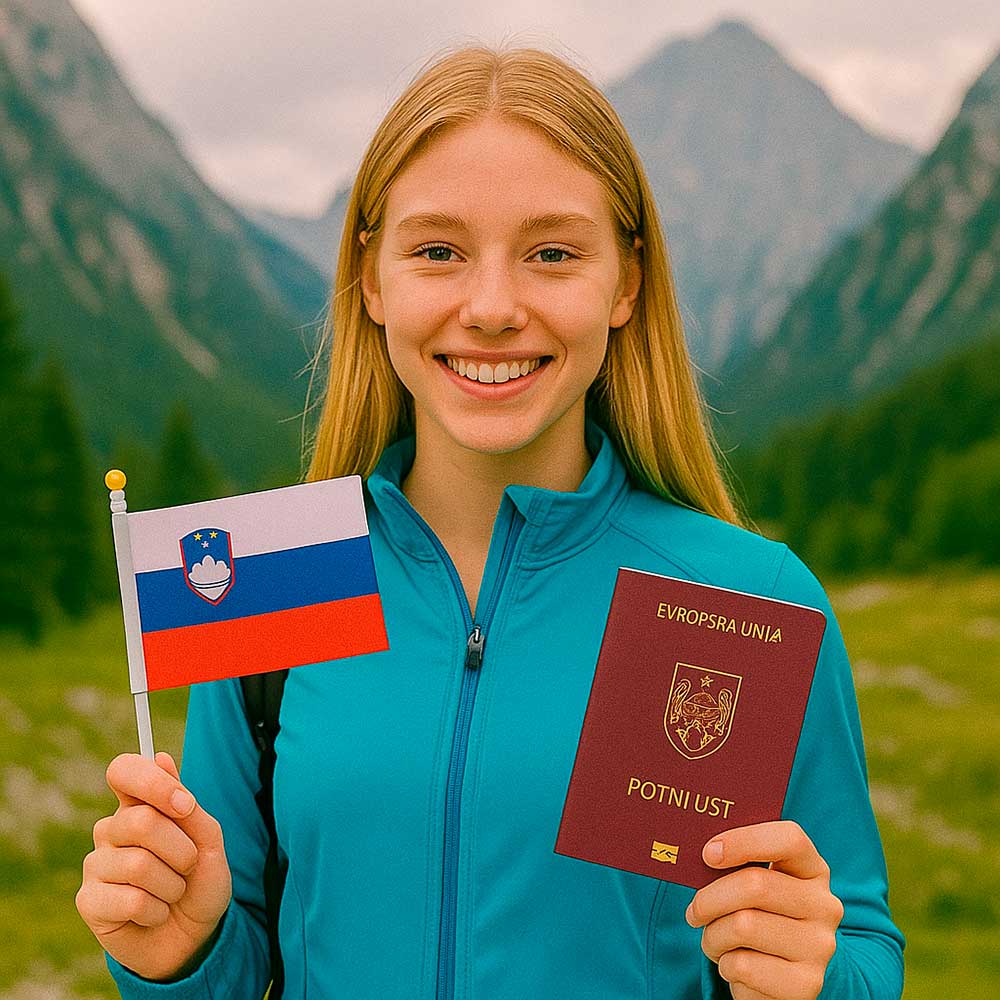
There is no legal limit on the number of applications. It is possible to reapply, but only after the reasons for the refusal have been eliminated – for example, if the initial period of residence was insufficient or there were errors in the documents. It should be taken into account that each time you will have to pay the fee and submit the full package again, so it is advisable to consult a lawyer first to rule out a repeated refusal.
Yes, in individual cases – for example, in case of serious illness, urgent travel, family circumstances or the interests of a minor child – the Slovenian Ministry of the Interior may consider the application more quickly. For this purpose, it is necessary to attach official evidence (statements, certificates, letters) and submit a separate written request for acceleration. The decision is made on an individual basis and is not guaranteed.
For adult applicants, almost always not: they are obliged to submit the documents in person in Slovenia, at the administrative authority (Upravna enota) of their place of residence. Only children can apply through consulates if at least one of the parents is a Slovenian citizen or in case of restoration of citizenship. It is not possible to apply for full naturalization abroad.
Yes, if you officially declare your income, pay taxes in Slovenia and can prove stable income (for example, bank statements or contracts with foreign clients).
It’s the residence registration that matters, not the form of ownership. You can live in a rented apartment – the main thing is that the lease agreement must be valid and you must have an official address.
Slovenia does not offer direct citizenship by investment. The available route is through obtaining a residence permit via business or investment, maintaining legal residence, and then applying for citizenship after a required period (usually 10 years, with some possible reductions).
